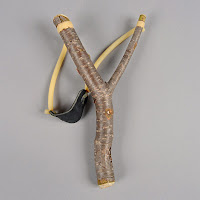"The last time I had felt a rush like this was that day in the winter of 1975, just after I had cut the last kite, when I spotted Baba on our rooftop, clapping, beaming. I looked down at Sohrab. One corner of his mouth had curled up just so. A smile. Lopsided. Hardly there. But there."
The kite is not only an important symbol in the story, but it is also a good example of irony that is evident at the beginning and end of the story. The kite is ironic because it is the very thing that made Amir abandon Hassan, but it also brings him closer to Sohrab and gives them new hope. The kite also ties into Amir's search for redemption and his guilt. Because Amir wanted so badly to redeem himself to his father, he did his best to win the kite fighting tournament. He won and brought the kite home as a trophy, but it reminded him every day of his mistake of not saving Hassan. This incident led to Hassan's alienation and eventually Sohrab's misfortune. Sohrab falls into a depression after being rescued, and it is flying the kite that gives Sohrab a sense of connection with his father. Amir starts to accept the horrible fate that befell Hassan, even quoting him, saying, "For you, a thousand times over."
Baba dying at the hands of cancer
“Lore has it my father once wrestled a
black bear in Baluchistan with his bare hands. If the story had been about
anyone else, it would have been dismissed as laaf, the Afghan tendency to exaggerate….But no one ever doubted
the veracity of any story about Baba.”-Amir
Baba had always been very strong-willed,
as if nothing in the world could stop him from voicing his views. One would
expect someone as self-righteous as Baba to die perhaps in a fight while
bravely standing up for the weak, or at least in a battle that he incites,
prepared for death. It is somewhat unexpected and morbidly funny how Baba dies
at the hands of cancer, something completely out of his control. However, Baba
does die on his own terms, happily, surrounded by his son and new family.


Amir laughing while taking Assef’s
beating
“What was so funny was that, for the
first time since the winter of 1975, I felt at peace. I laughed because I saw
that, in some hidden nook in a corner of my mind, I’d even been looking forward
to this. I remembered the day on the hill I had pelted Hassan with pomegranates
and tried to provoke him…I hadn't felt better, not at all. But I did now. My body
was broken-just how badly I wouldn't find out until later-but I felt healed. Healed at last.” –Amir
Similar to how being beaten up relieved
Assef of his kidney stones, it relieved Amir of the guilt that he had been
plagued with ever since that day he hadn't saved Hassan. It is ironic that while
he is being injured physically, he is also healing mentally. Amir finally stood
up to Assef, and in his pain, he discovered what he had been searching for the
whole time-redemption. Unlike that day when he abandoned Hassan in the alley in
order to keep the kite and his father’s pride, allowing himself be beaten by
Assef to save Sohrab was a selfless and noble thing to do. Amir did not
willingly take Assef’s blows for glory, but because it was his punishment for
betraying Hassan. Without even realizing or trying, he had finally become the
kind of man his father would have been proud of, had he still been alive then.







